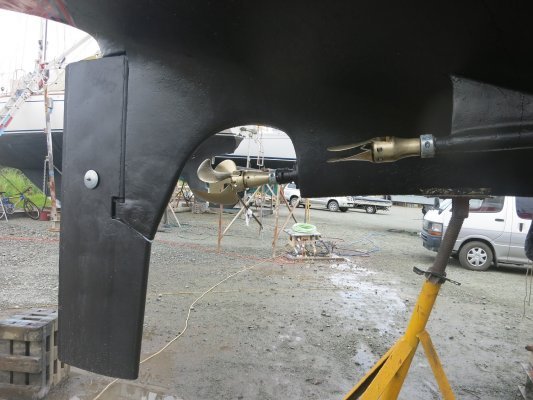Engines. power and re-power will be the largest issue of having a larger boat.
even under 30ft I'm finding twins below; I like twins!
But! This is a big expensive issue for me, as I'm sure it is for anyone coming from sail or smaller engine boats.
$10,000 +- a pop is not small change and probably why many older boats are on the market.. engines getting old. although some have been re-powered
Is it very unusual to take a single engine boat and install twins? Seems easy enough. given that fact that trawler types have way way more below deck space then sail boats.
this is the one big issue that may keep me from going for the trawler type boats.
What you and others have done or will do is of great interest to me!
I'm thinking and know how.. get 2 little yanmars or kubotas.
Oh. what transmission ratios are used on mid range speeds?
even under 30ft I'm finding twins below; I like twins!
But! This is a big expensive issue for me, as I'm sure it is for anyone coming from sail or smaller engine boats.
$10,000 +- a pop is not small change and probably why many older boats are on the market.. engines getting old. although some have been re-powered
Is it very unusual to take a single engine boat and install twins? Seems easy enough. given that fact that trawler types have way way more below deck space then sail boats.
this is the one big issue that may keep me from going for the trawler type boats.
What you and others have done or will do is of great interest to me!
I'm thinking and know how.. get 2 little yanmars or kubotas.
Oh. what transmission ratios are used on mid range speeds?
Last edited:

 For most displacement yachts Twins are like putting 8 wheels on your car...
For most displacement yachts Twins are like putting 8 wheels on your car...

